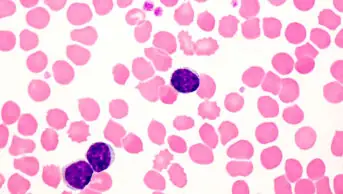As pharmacists take on expanded clinical roles, there is a need to create more opportunities for pharmacy technicians to advance their clinical practice. Oncology is an opportune area for this, owing to workforce challenges. The Northern Cancer Alliance is currently undertaking a non-surgical oncology review, which recognises these challenges and seeks to address them by working with provider trusts, as well as Health Education England, to increase consultant training places in oncology, diversifying staff through advanced clinical practitioner training, upskilling and creative skill mix changes.
Within provider trusts, cancer services struggled with returning patients following COVID-19. Appointing to vacant nursing posts was challenging and day unit treatment waiting times increased. At Northumbria Healthcare Trust (NHCT), an oncology business case was presented to provide staffing that matched activity and to create a robust workforce capacity for the next five years.
This business case proposed training three oncology pharmacy technicians who would be based on each of the main day units for systemic anticancer therapy (SACT) delivery. The training included the chemotherapy course at Northumbria University, the UK Oncology Nursing Society (UKONS) SACT Passport, completion of logs for oral SACT checking, consultation and hand out, completion of logs for subcutaneous and intramuscular administration and completion of logs for cannulation and venepuncture. The technicians shadowed nursing staff from the first day on the unit until signed off. Currently, the functions signed off by the lead clinical pharmacist include venepuncture, cannulation, authorisation of oral treatments on the e-prescribing system, second checking of all SACT, toxicity assessments of patients on oral SACT, subcutaneous and intramuscular administration.
The NHCT SACT policy was updated and ratified by the trust’s Policy Assurance Group. All activities were performed in line with standard operating procedures and in-house training guidelines. Each encounter was supervised and countersigned by a registered nurse and/or the designated supervisor approved to perform the task. The clinical educator — a qualified nurse and approved SACT Passport assessor — reviewed all SACT passports prior to submission. For each new SACT drug handled, an individual drug formulary sheet is produced covering indication, mechanism of action, side effects, critical tests and other relevant considerations.
In addition to the SACT administration role, the technicians also started a new service for patients attending the day unit. This is now known as the medicines reconciliation pre-assessment clinic. Information is included in the initial booking letter, alerting patients that they will receive a telephone call from the oncology pharmacy technician. The technicians contact the patients one week before the date of first treatment, to discuss their medicines and any investigations they may require prior to commencing chemotherapy. This is an opportunity to bring patients in for bloods or arrange appointments that may have been missed initially. A patient file review is also undertaken to check the regimen prescribed and ensure the correct protocol is attached to the patient’s note. At this point, technicians liaise with consultants, senior oncology/haematology pharmacists and day unit managers as needed. This service is proving vital for the seamless transfer of patients from consultant clinics to the chemotherapy day unit.
These roles have been well received by both patients and staff on the oncology day units. The consultants appreciate having a clinical point of contact for the referral of patients to the day units. The pharmacy team feedback is that there is real benefit for aseptics/dispensary/clinical pharmacists in having the technicians in post. The patients value the expertise of technicians in answering medication questions during pre-assessment and are impressed by their role. The pharmacy technicians also derive a great deal of job satisfaction from their new roles. They can progress their career while remaining clinical and patient facing. Their motivation and enthusiasm is commendable and has truly made a difference to the project. There are rare opportunities to implement one change that positively impacts all aspects of the service, this is proving to be one such.
The next steps in the project are to undertake supervised intravenous administration of SACT. The pharmacy technicians need to complete logs and be signed off by the lead clinical pharmacist and clinical educator. The intravenous section of the SACT Passport also needs to be completed and this competency added to their account on the trust system. The potential for this development is significant and we are approaching it with due consideration. This will commence later in 2023.
Trusts are encouraged to include pharmacy technicians in their oncology workforce and, if already present, to explore options for upskilling to SACT administration.
This work was presented at the 2022 British Oncology Pharmacy Association (BOPA) symposium in Liverpool. There is a BOPA podcast on this topic and a Live BOPA webinar was held in March 2023 and is available here
Acknowledgements
Thank you to Emma Foreman, chair of the British Oncology Pharmacy Association, and Mollie Bishop and Melanie Lowe, chairs of the technician subcommittee, for all their support to bring this project to the wider oncology community.
Thank you to David Campbell, chief pharmacist/clinical director of medicines optimisation at the Northumbria Healthcare NHS Foundation Trust (NHCT).
Thank you to Amanda Walshe, lead cancer nurse, and Helene Carrielies, clinical educator, both at NHCT.
Last but not least, many thanks to the day unit managers, their teams, and to pharmacy technicians Rebecca Toole, Nicola Armstrong and Emma Brownbridge for all their hard work.
Ezinne Ezeala is lead clinical pharmacist (oncology) and chair of the Systemic Anticancer Therapy (SACT) Multiprofessional Group, Northumbria Healthcare NHS Foundation Trust


